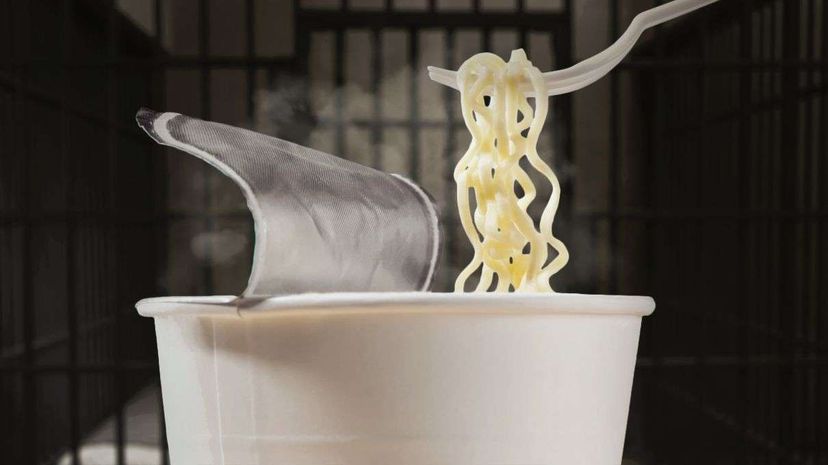
If you've ever watched a prison drama, you know the importance of cigarettes in the underground penal economy. In lieu of cash, a pack of smokes becomes the preferred monetary unit. Or at least that's how it used to be.
Now, according to new research from University of Arizona School of Sociology doctoral candidate Michael Gibson-Light, ramen noodle cups have surpassed tobacco, stamps and envelopes to become the inmate coin of choice — and the reason has nothing to do with prison regulations or nicotine-avoiding convicts.
Advertisement
Following a 12-month investigation and interviews with 60 inmates and prison staff members at an unnamed U.S. men's prison, Gibson-Light found that prisoners turned to the tasty, cheap, high-calorie promise of ramen noodle cups to make up for a decade of decline in prison food quality and quantity.
It's a situation that amounts to what the researcher calls "punitive frugality." Simply put, the cost of care trickles down from underfunded prison systems to the inmates and their support networks.
While these findings stem from interviews at a single prison, Gibson-Light stresses that the trend is evident in other prisons where tobacco products are permitted. What's more, he observed the move to a ramen-based prison currency across various inmate populations, security levels, cliques and racial groups. Ramen cups even pop up as bargaining chips in poker games.
Russian author Fyodor Dostoyevsky wrote that "the degree of civilization in a society can be judged by entering its prisons." What, therefore, does the concept of punitive frugality tell us about the modern state of civilization in the United States?
Gibson-Light is presenting his paper "Must Work for Food: The Politics of Nutrition and Informal Economy in an American Prison" today at the American Sociological Association's 111th Annual Meeting in Seattle.
Advertisement

